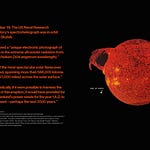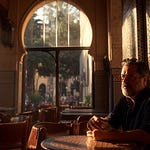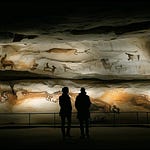In this episode of Citizen One: Exploring Our Urban Future, an urbanNext original podcast series, host Douglas Stuart McDaniel speaks with architect and urbanist Marcella del Signore about her groundbreaking exhibition Emotional Geographies of the Mediterranean, currently featured in the Italian Pavilion at the 2025 Venice Architecture Biennale.
Associate Professor and Director of the MS in Architecture and Urban Design program at the New York Institute of Technology and a Founder and Principal of X-Topia, Marcella discusses how emotion—too often overlooked in data-driven design—is in fact central to how we perceive, inhabit, and construct space. Her project combines sensorial mapping, social media sentiment analysis, soundscapes, and walking interviews to chart the emotional layers of Mediterranean coastal cities.
Together, Doug and Marcella explore the implications of mapping affective experience in a region shaped by migration, climate crisis, and cultural rupture. The conversation challenges the limitations of Human-Centered Design, proposing instead a shift toward relational-centered urbanism—one grounded in multiplicity, memory, and spatial justice.
“Each image, each caption, becomes a subjective map,” Marcella explains. “And when we read them collectively, we begin to see how people feel their way through space.”
Concepts like the emotional city or empathetic urbanism are no longer fringe or theoretical indulgences, Doug notes—they are simply new datasets we’ve long neglected.
“They’re not woke or woo,” he said, “they’re just new data sets we hadn’t really considered before—just as valid, just as measurable.”
Marcella agreed, emphasizing that emotions, sensory input, and embodied experiences are not intangible abstractions but critical indicators of spatial justice, cognitive well-being, and urban livability. This exchange crystallized a shift in discourse: from seeing affect as anecdotal or ornamental, to recognizing it as infrastructural—a vital layer of urban knowledge that expands how we assess, design, and care for cities.
In the conversation, the pair critiques dominant architectural practices as "archetype factories"—systems that replicate reductive models of the “user” based on algorithmic patterns, market typologies, and cultural assumptions.
These models often flatten human diversity into performative proxies, producing cities that optimize for efficiency rather than experience. In contrast, her work across neurourbanism, sensorial urbanism, and what she calls emotional urbanism seeks to reclaim space as a cognitive and affective ecology.
Drawing on neuroscience, environmental psychology, and data-driven mapping of affective responses, she challenges the discipline to move beyond consensus and standardization toward architectures of multiplicity, memory, and perception. “We design not just with data,” she notes, “but with grief, with joy, with friction.” It’s a call to reimagine urbanism not as a delivery mechanism for normative users, but as an open-ended dialogue with the invisible infrastructures of emotion.
From post-Katrina New Orleans to her work in Latin America, in the GCC region and Europe, Marcella’s practice asks us to rethink what it means to map, to know, and to study the emotional geography of the city.
X-Topia is Marcella del Signore’s interdisciplinary design and research practice operating at the intersection of architecture, urban design, landscape, and emerging technologies. With offices in New York, Rio de Janeiro, Rome, and soon Riyadh, X-Topia blends academic research, public interest design, and speculative urbanism into a hybrid consultancy model.
Founded during her time in post-Katrina New Orleans—where she also taught at Tulane for a decade—X-Topia initially focused on urban regeneration and resilience. Over time, it evolved into a platform for advancing sensorial and neurourbanist methods, applying them to both physical master plans and digital user journeys.









